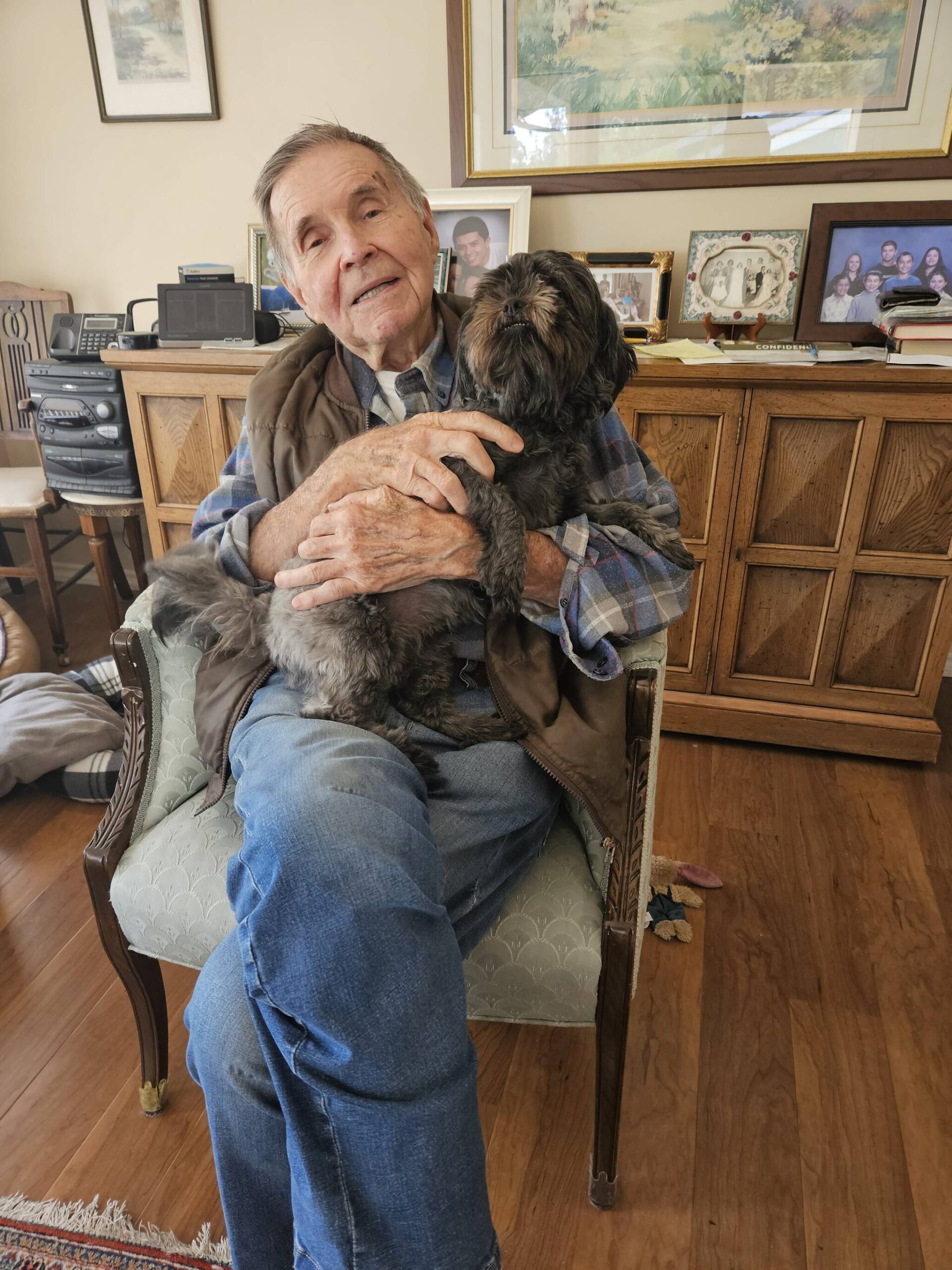We are all aging — but are we aging well?
I have a neighbor, Don Strome, who is 94. We met only a few weeks ago. He lives right down the street, in a house he and his father built in the 1950s. I am fairly new to this neighborhood.
He was out walking his dog recently and we started chatting. His wife died a few years ago and he lives alone. Although he has children and grandchildren who visit regularly, his best friend may be his dog, Minny. They walk on our street several times a day, where I often talk with him.
In getting to know Don, I have been extremely impressed by how bright and alert he is. He is “sharp as the proverbial tack.” Don follows the news, is well informed, has strong opinions, cracks jokes, and reads a lot. Books, magazines and newspapers fill his living and dining room. He is computer savvy and watches news programs and online interviews. He was a civil engineer who worked at Boeing for many years and also taught at the University of Washington.
A devout Christian, he is a man of deep faith and traditional values. His favorite author is C.S. Lewis, especially “Mere Christianity and The Screwtape Letters.” He is very patriotic and worries about America’s future. Although he has a few health issues and takes some pain medications, Don seems to be aging well, although he says with a laugh, “I’m no Superman.”
The other day I drove him to Bellevue to hear Dr. John Medina, author of “Brain Rules for Aging Well — 10 Principles for Staying Vital, Happy, and Sharp.” I had heard Medina speak before on the importance of exercise for good health and longevity.
But his most recent talk was on “The Brains Behind Making Friends.” Since Don and I had recently become friends, I thought he might enjoy hearing Medina speak.
(This was part of a free series sponsored by Belle Harbour, a Koelsch Communities company that is building a new senior living center in Bellevue.)
Medina did not disappoint. He is a dynamic, engaging speaker who combines solid scientific research with entertaining anecdotes and pertinent quotes. As a developmental molecular biologist at the University of Washington School of Medicine, he manages to make the nuances of neuroscience comprehensible to a general audience.
Of his 10 rules for aging well, diet and exercise are not listed first. What is Rule # 1? “Be a friend to others, and let others be a friend to you.” (To read the other 9, you’ll have to get the book! See www.brainrules.net.)
Medina makes a compelling case that friendship is one of the keys to aging well – maybe the most important factor. Having active friendships actually changes the brain, research studies have proved. The amygdala, frontal cortex and other key areas of the brain measurably improve. Cognitive function gets better, memory sharpens, stress is reduced, and longevity increases.
Here are a few quotes from Medina’s Bellevue presentation:
“The more friends you have, the better your brain gets structured.”
“It is not optional for you to ignore your friends.”
“If you do not have friends, don’t go walking, and are not in a book club, that’s not good for the brain.”
“We are alone a lot when we get older. Loneliness is bad for the brain. It increases our probability of death.”
“To get together with your friends is literally a matter of life and death. Have friends and see them every day.”
“Call your friends. Invite them for dinner. Have lots of Mediterranean food. And then go for a walk.”
On reflection, I started making a list of the things I do (at age 77) to keep my brain sharp. I am in a book club, am an active Rotarian, spend lots of time with kids and grandkids, get to know my neighbors (I helped organize a National Night Out gathering on Aug. 1), and have regular social-media exchanges and phone calls with a wide range of friends and relatives. I’m having dinner this week with a group of friends I have known since grade school. For exercise, I do yoga every morning, work out at the Jewish Community Center, kayak on Lake Washington, and take almost daily walks around the neighborhood or on the forested trails of Mercer Island’s parks. I took Don to Ellis Pond recently, where my wife and I feed the ducks.
As for diet, I’m working on it but there’s more room for improvement. After the Medina talk that evening, I had a nice piece of blueberry pie with vanilla ice cream. And I took a slice to Don. I told him we’d have to work on our Mediterranean diets. We’ll invite him over for dinner soon. We’ll serve fish, with olive oil on a nice salad. Then we’ll take a walk.
Don called me the other day to say that my wife and I had made a difference in his life.
Hey, isn’t that what friends are for?
Mercer Island resident John Hamer is a former Seattle Times editorial writer and columnist who now writes occasional columns for the Reporter.



